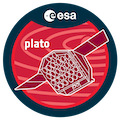Speaker
Description
PLATO’s top-level science goal is to discover and characterise a sample of small (terrestrial and sub-Netpune size) transiting planets orbiting in the habitable zone of bright stars, and to measure their radii, masses and ages with accuracies of 3, 10% and 10%, respectively. To achieve this goal requires an exquisite understanding of stellar variability signals, from magnetic cycles to spots, faculae, and (super-)granulation: at the level of precision of the PLATO light curves and its.ground based follow up programme, every star is a variable stars. The most promising solutions to the problem involve data-driven models flexible enough to bridge the gaps in our understanding, but robust enough to avoid over fitting. In this invited talk I will review some exciting recent progress in the mitigation of stellar variability in the detection and characterization of transiting exoplanets, illustrating them with current and archival datasets. I will then outline the current status of our plans to address stellar variability within the PLATO consortium and pipelines,

